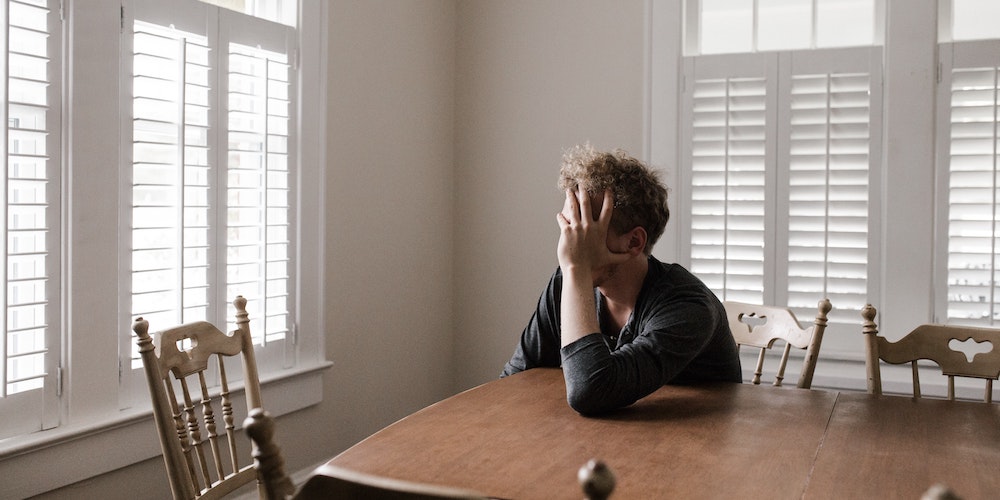Overcoming Anticipatory Anxiety

How many times in your life has the thought of a potential future caused you problems in the here and now? Or maybe a troubling hypothetical has caused you to lose sleep for days or weeks? If so, you may be familiar with anticipatory anxiety. Learn more about overcoming anticipatory anxiety with GLPG.
Anticipatory anxiety is often experienced as an intense sense of dread of experiencing emotions such as fear or panic, anger, shame, overwhelm, disgust, or any other unwanted or uncomfortable emotion. For example, one might experience anticipatory anxiety upon waiting to hear about a medical test result, getting ready for a first date, or anticipating an upcoming family reunion. For someone who experiences this type of anxiety, the time leading up to the event becomes full of stress-inducing imaginings of “what-ifs” and worst-case scenarios. Anticipatory anxiety is referred to as the “third layer of fear”, which is essentially the fear of fear itself.
Let’s use an example of someone’s fear of spiders to illustrate this concept of layers:
1st layer of fear: This person sees a spider and feels afraid.
2nd layer of fear: This person is in a dusty storage space and feels nervous about potentially seeing a spider.
3rd layer of fear: This person thinks of the upcoming task of getting holiday decorations out of the attic, then thinks that the attic could have spiders living up there, then they feel so anxious about reacting with fear to these hypothetical spiders that they avoid getting out any decorations at all.
How anticipatory anxiety affects behavior
You can think of this third layer of fear as the “avoidance layer.” Anticipatory anxiety is a powerful motivator of avoidance because it focuses your attention specifically on the negative things that could happen. These imagined outcomes can range from mildly upsetting to absolutely unbearable. The more alarming the possibility, the stronger the urge to avoid it would be. For example, anticipating mild discomfort in a social setting would be less challenging to overcome than anticipating catastrophes such as public humiliation, literal mortal peril, or great personal loss.
Our brains tend to be poor predictors of the likelihood of these potential outcomes, as well as how harmful the outcomes will be. Anticipation of such disastrous outcomes (whether they are likely or not) leads our brains to choose the only option that seems safe: avoidance.
The brain’s message to avoid potentially risky situations has a powerful effect on behavior. We can often find ourselves avoiding situations even when we know we aren’t likely to experience those horrible outcomes, and as a result, end up missing out on meaningful experiences. For example, if you’re extremely anxious about feeling embarrassed in front of people, the world misses out on your hilarious stand-up routine. More so, you miss out on the joy of making a room full of people laugh, growing as a performer, and doing something brave.
Tips for overcoming anticipatory anxiety
Anticipatory anxiety can be burdensome and have a major impact on your quality of life. Fortunately, effective solutions are available.
Here are some strategies for coping with anticipatory anxiety:
Work with a therapist to identify and correct cognitive distortions
Much of the thinking occurring while experiencing anticipatory anxiety is riddled with cognitive distortions or “thinking errors.” For example, a common thinking error related to anticipatory anxiety is catastrophizing, in which the brain generates a worst-case scenario and dismisses all other (much more likely) scenarios. Another example of a common distortion is jumping to conclusions or “future telling” which is the brain’s best attempt at predicting an unknowable future. For an anxious brain, the future is often forecasted as a pretty scary place. A therapist trained in cognitive-behavioral therapy will help you identify and challenge these errors in order to consider a situation more clearly.
Engage in exposure therapy
With the guidance of a trained professional, gradual exposure can help rewire the brain to decouple a stressor from the stress response. Gradual exposure is an intervention of certain therapies related to anxiety, phobias, and trauma that allow individuals to experience varying degrees of their stressor in a safe environment while practicing distress tolerance and relaxation techniques.
Practice mindfulness
Being mindful of our thoughts can help us shift into a metacognitive perspective. This means that we begin to think about our thinking. This is helpful for us to identify what is a passing anxious thought and what is a reality we need to confront. Adopting a metacognitive perspective is also helpful in recognizing and addressing patterns of anticipatory anxiety. For example, if you know that you are afraid of heights, you can be mindful of the fact that you will likely experience anxiety when crossing tall bridges. This mindfulness allows us to expect and then accept the passing moment of anxiety without avoidance disrupting our intent.
Reduce stress
Stress is a major contributor to anxiety and can significantly affect our nervous system’s readiness to jump into fight or flight mode. By working to reduce overall stress in our lives, we allow the nervous system to rest, recover, and become more resilient.
Talk to a doctor about medication options
Anxiety is modulated by a mix of genetic and environmental factors and some brains are more susceptible to it than others. Medication can be an effective tool to help relieve anxiety symptoms in addition to coping skills such as mindfulness and stress reduction.




